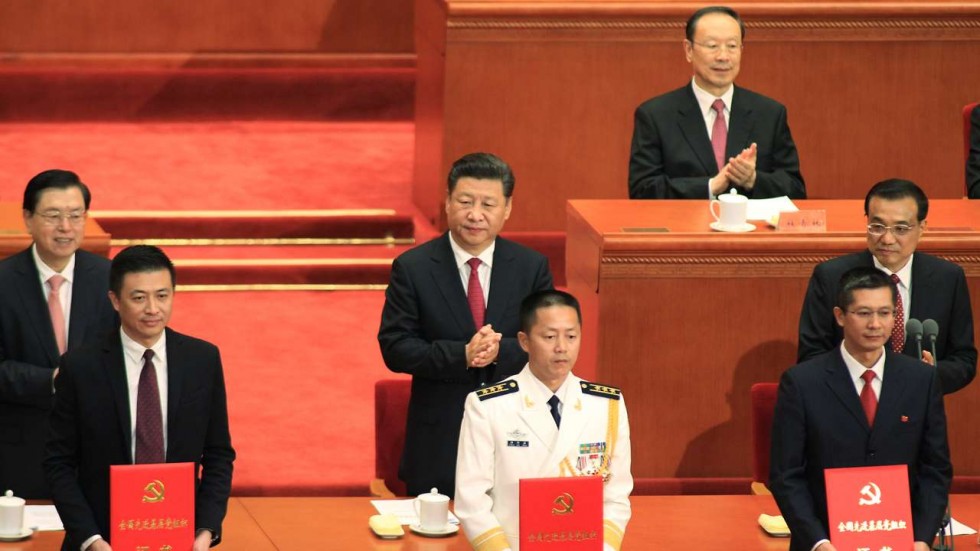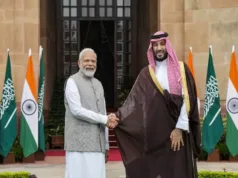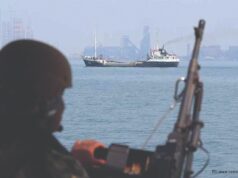

New Delhi: Chinese President Xi Jinping is all set to become the most powerful leader of China after Mao Zedong, the founder of modern China.
The 19th National Congress of the Communist Party of China kicked off on Wednesday — a hugely important political event in China in which the party meets for roughly a week once every five years to decide on its leadership and set the tone of policymaking in the next five years.
It is expected that the party will rewrite its constitution to enshrine “Xi Jinping Thought” by the end of the next week. This move would elevate him to the level of previous leaders Mao Zedong and Deng Xiaoping.
The party will also assign people to top leadership positions, most notably the all-powerful Politburo Standing Committee – a group, currently composed of seven people, who make up the most senior decision-making body in the Chinese Communist party.
If Xi succeeds in getting his allies into many of those top leadership positions then he’ll have more control over the party and an enormous mandate to push his agenda for the country’s future.
Xi’s Opening Speech
Neither do men put new wine into old bottles: else the bottles break, and the wine runneth out, and the bottles perish: but they put new wine into new bottles, and both are preserved.
– Matthew 9:17 (King James Version)
Under Xi, China has become a global powerhouse and has gained significant political clout, as the U.S. power in global politics is receding.
To kick off this year’s congress, Xi delivered a 3.5-hour-long opening speech in which he highlighted his achievements over the past five years and presented a vision for the country’s future.
He heralded a “new era” in Chinese political life and repeatedly boasted of China’s status as a “great power.”
Xi extensively talked about making the Chinese economy more flexible and prosperous by improving state-owned enterprises but he made it clear that it wouldn’t be moving toward a conventional market economy.
Disputes going to increase
For centuries, the South China Sea region has been vital to the economic survival of neighboring Vietnam, Malaysia, Brunei and the Philippines.
According to VOA, South China Sea shipping lanes provide access to trade-intensive waters of the Indian Ocean, via which more than half of their respective energy needs are met. For non-claimant Indonesia, Natuna Sea fishing grounds along the southern fringe of the contested region hold vital natural gas reserves.
Many nations have urged Beijing to abide by the United Nations Convention on the Law of the Sea (UNCLOS), which sets maritime zones of control based on coastlines. The United States, which has signed onto UNCLOS without ratifying it, often relies on the international agreement to settle territorial disputes. China has refrained, invoking intertemporal laws based on the deep historical record, such as archaeological findings on disputed reefs and islands.
In his speech, Xi talked about China’s growing influence on the world stage and discussed his country’s increasing control of the disputed South China Sea under his first term and called for efforts to make the Chinese military more powerful. He also called for Chinese mainland control of Taiwan, the island nation off the coast of China that Beijing considers a renegade province.
Under Xi, China witnessed a clampdown on free speech and civil society. This theme is going to stay and Xi signaled this when he said that internet censorship is important to “clearly oppose and resist the whole range of erroneous viewpoints.”
Xi has largely been successful in projecting Chinese power across the globe through projects like the “One Belt, One Road” initiative in which China is building multiple infrastructure project across Eurasia.
However, after analyzing his speech its clear that Xi’s “new era” is going to be the same like his previous tenure with more rhetoric and little substance.
Xi doesn’t need to do something wild or extraordinary to increase China’s power because of erratic American foreign policy.
The congress, which takes place once every five years, will finish on Tuesday. More than 2,000 delegates are attending the event, which is taking place under tight security.








